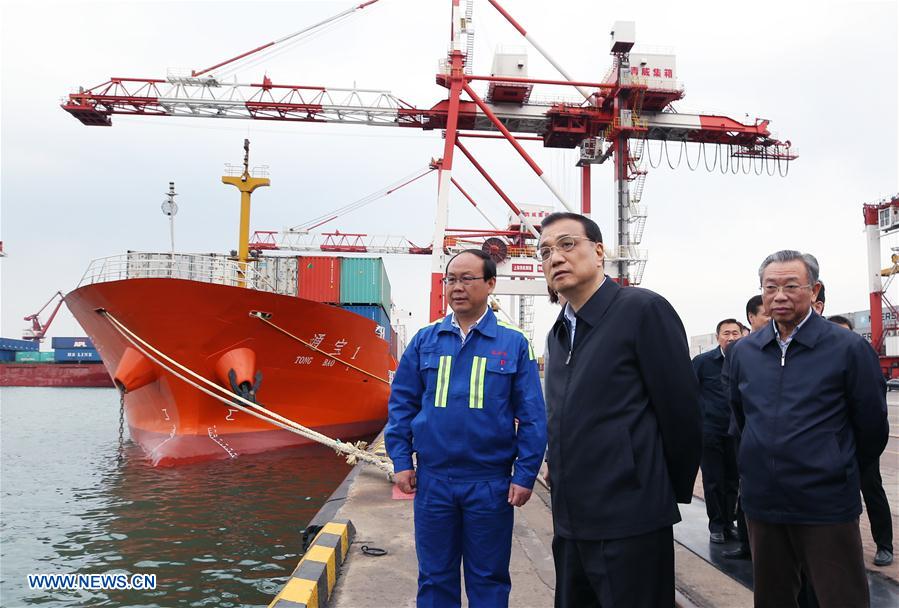
Chinese Premier Li Keqiang (C) inspects Weihai Port in Weihai City, east China's Shandong Province, April 19, 2017. Li visited Shandong from Wednesday to Friday. (Xinhua/Yao Dawei)
BEIJING, April 22 (Xinhua) -- Chinese Premier Li Keqiang has urged Shandong Province to quicken efforts to foster new growth drivers to replace old ones and support the firming trend in the broader economy.
In a tour of Shandong from Wednesday to Friday, Li acknowledged the region's economic and social achievements and asked local authorities to adopt new growth concepts under the leadership of the Communist Party of China Central Committee with Xi Jinping as the core.
At the port of Weihai, Li learned about export and import growth there and urged regulators to boost capacity to facilitate China's central and western regions, as well as small and micro businesses to tap the global market.
"As a big trading nation, China will stick to opening-up to the world," Li stressed.
While visiting medical equipment producer Wego Group and garment company Dishang Group, Li underscored the role of innovation in creating high-quality products and fostering new business models.
He urged Wego to capitalize on the opportunities presented by the government's "Made in China 2025" strategy and encouraged Dishang to transform business models to boost product quality and brand to higher levels.
After being briefed on the capacity-cut progress at Jinan Iron and Steel Company, Li told employees that the drive needs support from both central and local authorities, and the government will ensure that workers made redundant in the process will be reassigned for other jobs.
Visiting a shantytown in Jinan city, the premier demanded greater efforts to speed up renovation as the project is an important part of China's new type of urbanization.
Li also went to a township health center where he urged further efforts to make medical services more easily accessible to the public.
Other issues Li has stressed during the tour include further streamlining of government administrative power and the development of modern agriculture.



